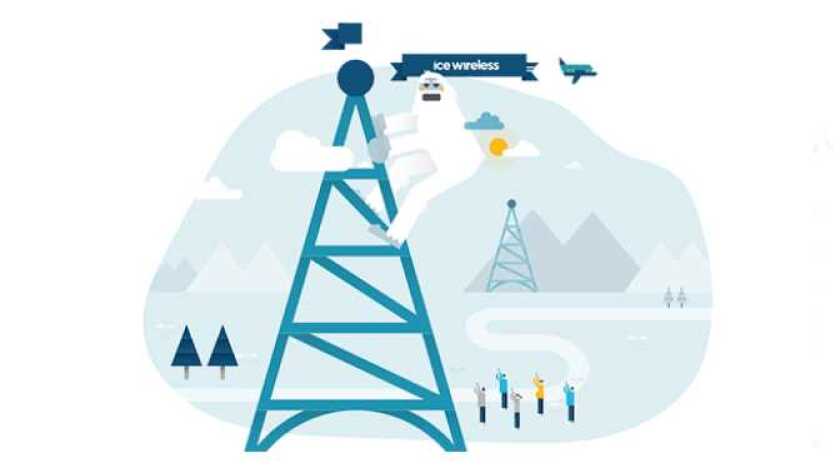The UK government – in the middle of a change of régime – said it was waiting to see the outcome of the US embargo on Huawei. The US government has indicated that the ban on Huawei might be relaxed in certain circumstances.
Meanwhile in Canada the federal government in Ottawa has approved projects by allied companies Ice Wireless (pictured) and Iristel to use Huawei kit.
The Canadian project is to connect 20 communities in Arctic Canada and 50 in north-eastern Québec, with possible extensions to parts of Newfoundland and Labrador in the east.
Ice Wireless already delivers 3G and 4G services in remote areas of northern Canada. It has a strategic partnership with Iristel, an operator of international carrier-grade voice over IP (VoIP) services, also operating in the Canadian north.
The project will take until 2025, said Alykhan Velshi, a Huawei Canada executive, at a press conference yesterday.
Meanwhile in the UK, the imminent reshuffle of the government under the new Prime Minister, Boris Johnson – who takes office on Wednesday – means the decision on Huawei has been delayed. Jeremy Wright, the Cabinet minister for digital and media in Theresa May’s administration, “sensible, helpful or responsible” to take a final decision.
Wright was introducing the government’s review of the telecoms supply chain. Operators “will need to design and manage their networks to meet these new standards”, said the government. “They will also be subject to rigorous oversight as part of their procurement and contract management processes.”
Wright said: “The UK telecoms sector must prioritise secure and safe networks for consumers and business. With the growth of our digital sector and transformative new services over 5G and full fibre broadband in the coming years, this is not something to compromise on.”
The government will develop legislation and look to provide the regulator, Ofcom, with stronger powers. Ciaran Martin, CEO of the UK’s National Cyber Security Centre (NCSC), said: “These new measures represent a tougher security regime for our telecoms infrastructure, and will lead to higher standards, much greater resilience and incentives for the sector to take cyber security seriously.”
The government said it was still considering the position of Huawei – though the company was not named, being simply included in what it called “high risk vendors”.
It said there was “uncertainty around the implications for the telecoms market as a whole” of the US’s placing of Huawei on its entity list – its list of embargoed companies. “The government is further considering its position relating to high risk vendors. Decisions in this area will be made in due course.”










